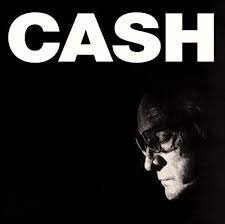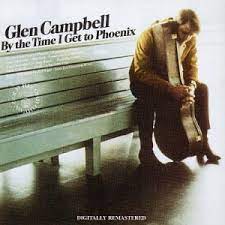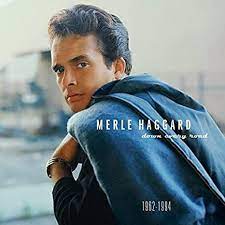Pricing: $3.25ea OR any 10 for $10
(use code "Any10410" at checkout)
Paid Requests for $25ea
(comes with any 8 freebies -> so 9 for $25)
100's Of Free Demos & Chord Sheets
Ernest Tubb Songs
On The Acoustic
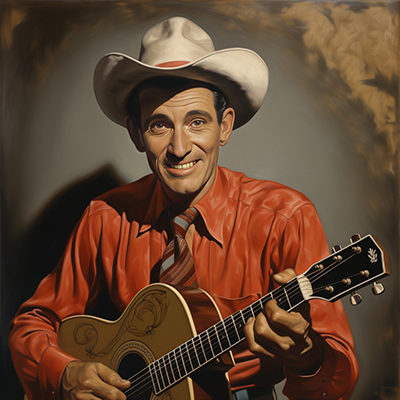
Welcome to my Ernest Tubb songs page.
In this webpage, we will explore seven of Ernest Tubb's most popular songs as a collection of full lesson tutorials available for purchase along with several free chord sheets in .pdf format and some rhythm tips on playing each song.
Jump links to quickly access song sections.
Ernest Tubb Songs
Chords, Lyrics, Rhythm Tips, Tutorials
1. I Ain't Goin Honky Tonkin Anymore
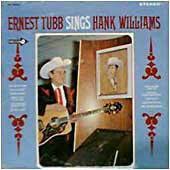
"I Ain't Goin' Honky Tonkin' Anymore" is a country song recorded by Ernest Tubb. It's a poignant and reflective song that touches on themes of change, personal growth, and leaving behind a certain lifestyle.
The track was released as a single by Ernest Tubb in 1964. The song was written by Tommy Collins. It received attention and recognition, though it may not be as well-known as some of Tubb's biggest hits.
The song's lyrics tell the story of someone who has made a decision to leave behind the lifestyle of honky-tonk partying and drinking. The narrator reflects on the changes they're making, emphasizing that they're moving away from the late nights and the honky-tonk scene. It also features a traditional country arrangement, characteristic of Tubb's honky-tonk style. Tubb's emotive vocals contribute to the song's sincerity and the depth of the emotions being expressed.
"I Ain't Goin' Honky Tonkin' Anymore" was included on the album "Thanks a Lot" released in 1964. The album featured a mix of Tubb's songs, including other hits and well-known tunes from his repertoire.
The song reflects the themes often explored in honky-tonk country music, where struggles, heartaches, and decisions are central to the narratives.
Jump To Top Of Ernest Tubb Songs
2. I've Got All The Troubles I Can Handle
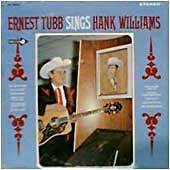
"I've Got All the Troubles I Can Handle" is a country song recorded by Ernest Tubb. It's a classic example of Tubb's honky-tonk style and his ability to convey emotions through his music.
The song was released as a single by Ernest Tubb in 1966. The song was written by Leon Ashley and Margie Singleton. While it may not be as well-known as some of Tubb's other hits, it still garnered attention and charted on the country music charts.
The song's lyrics center on the theme of dealing with life's challenges and difficulties. The narrator acknowledges that they have their fair share of troubles and worries, implying that they're already burdened and don't need any additional problems.
Like many of Tubb's songs, "I've Got All the Troubles I Can Handle" features a traditional country honky-tonk arrangement. The straightforward lyrics and Tubb's sincere delivery are hallmarks of his emotive singing style.
The song was included on the album "Ernest Tubb Sings Hank Williams" released in 1968. This album paid tribute to fellow country legend Hank Williams and featured Tubb's interpretations of Williams' songs.
The album "Ernest Tubb Sings Hank Williams" showcased Tubb's reverence for Hank Williams' music and legacy. The album included other classic Hank Williams tunes, such as "Your Cheatin' Heart" and "Cold, Cold Heart."
While information about live performances of this specific song may be limited, it's likely that Tubb would have included it in his live shows, especially as part of his tribute to Hank Williams.
- Drop D Tuning = No
- Capo = No
- Rhythm = root down up down up down up and repeat
- Picking = Yes
- Chords = C, G, C7, F
Jump To Top
3. My Baby Don't Dance To Nothin' But Ernest Tubb (Junior Brown)
This is a song that was recorded by Junior Brown about Ernest Tubb and not a recording by Ernest, but I thought I'd include it here on his page.
- Drop D Tuning = No
- Capo = 2nd fret
- Rhythm = root down up down up down up and repeat
- Picking = Yes a little
- Chords = G, E7, A7, D, D7
Jump To Top Of Ernest Tubb Songs
4. Nails In My Coffin
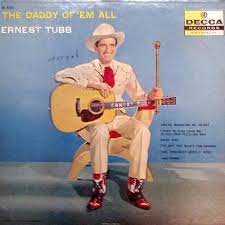
Nails in My Coffin was released by Ernest Tubb in 1946. The song gained popularity and became one of Tubb's signature tunes. It reached the top of the country music charts, solidifying its place as a classic in the genre.
The song's lyrics reflect themes of heartbreak and regret. The narrator laments a failed relationship, comparing each painful experience to a nail being driven into their own coffin. The metaphor of the nails in the coffin is used to express the emotional toll of lost love.
"Nails in My Coffin" is a honky-tonk country song characterized by its straightforward lyrics and emotive vocals. Tubb's distinct singing style and the song's traditional country arrangement contribute to its timeless appeal.
The song's emotional depth and relatable theme struck a chord with listeners, contributing to its enduring popularity. "Nails in My Coffin" showcases Tubb's ability to convey raw emotions through his music.
The song's success further solidified Ernest Tubb's position as a prominent figure in country music. It added to his growing catalog of hits and contributed to his legacy.
"Nails in My Coffin" remains a classic example of honky-tonk country music. Its enduring popularity has led to it being covered by other artists and featured in various country music compilations.
- Drop D Tuning = No
- Capo = 3rd fret
- Rhythm = down down up down up down up and repeat
- Picking = a few riffs blended into the rhythm
- Chords = Em, G, C, D, Dsus
Jump To Top Of Ernest Tubb Songs
5. Two Glasses Joe
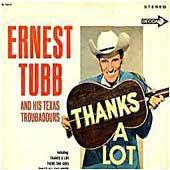
Two Glasses Joe is a country song recorded by Ernest Tubb. It was released as a single in 1963 and became one of Tubb's notable hits.
It was released as a single by Ernest Tubb in 1963. The song was written by Jerry Chestnut. It reached the top 10 of the country music charts, solidifying its place as a successful hit for Tubb.
The song's lyrics tell the story of "Two Glasses Joe," a character who turns to alcohol to cope with his troubles and heartache. The narrative revolves around Joe's experiences at a bar, where he seeks solace in alcohol and becomes a fixture known to everyone as "Two Glasses Joe."
"Two Glasses Joe" features a traditional country arrangement and Tubb's characteristic emotive vocals. The song's lyrics and melody work together to convey the melancholic and reflective mood of the narrative.
The track was included on the album "Thanks a Lot" released in 1964. The album contains a collection of songs, including other hits and well-known tunes from Tubb's repertoire.
The album "Thanks a Lot" showcases a mix of honky-tonk and traditional country songs that were popular during the era. Alongside "Two Glasses Joe," the album features tracks like "Thanks a Lot," "Answer the Phone," and "What My Woman Can't Do."
"Two Glasses Joe" remains a notable song in Ernest Tubb's catalog and is appreciated by country music fans for its storytelling and emotional depth.
The song's narrative about finding refuge in alcohol and the depiction of "Two Glasses Joe" as a character with a recognizable story became relatable to many listeners. The song's emotional resonance contributed to its popularity.
- Drop D Tuning = No
- Capo = No
- Rhythm = root, down up down up down up and repeat
- Picking = Yes
- Chords = G, A7, D, D7, G7, C, G6
Jump To Top Of Ernest Tubb Songs
6. Walkin The Floor Over You
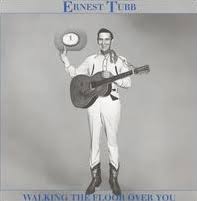
Walking the Floor Over You is a classic country song that became a major hit for Ernest Tubb. It was released in 1941 and is considered one of Tubb's signature songs.
The track was released as a single by Decca Records in 1941. It became an instant hit, reaching number one on the country music charts and solidifying Ernest Tubb's status as a prominent country artist.
The song was written by Ernest Tubb himself. It's a traditional country ballad that features Tubb's emotive vocals and simple, heartfelt lyrics.
The song's lyrics revolve around the theme of heartbreak and sleepless nights. The narrator is unable to sleep due to heartache and finds himself pacing the floor while reminiscing about lost love.
"Walking the Floor Over You" is often cited as one of the first honky-tonk songs. It features a distinctive rhythm and honky-tonk piano, elements that would go on to define the genre. The song's style is characterized by its straightforward, plainspoken lyrics and emotional delivery.
The song's success played a crucial role in establishing Ernest Tubb's career and helped him gain recognition as a key figure in the development of country music. The song's popularity led to Tubb being invited to join the Grand Ole Opry in 1943.
Over the years, the song has been covered by various artists, contributing to its enduring popularity. Notably, in the 1970s, Tubb re-recorded the song as a duet with Loretta Lynn.
The song's title and hook have become idiomatic in the English language, referring to someone who can't sleep due to worry or emotional turmoil. It's a testament to the song's impact on popular culture.
"Walking the Floor Over You" remains an iconic country song that captures the essence of early honky-tonk music and Ernest Tubb's heartfelt approach to singing. It's a classic that continues to resonate with country music fans to this day.
- Drop D Tuning = No
- Capo = No
- Rhythm = root down up bass up down up
- Picking = Yes
- Chords = C-F-G-G7-C7
Jump To Top Of Ernest Tubb Songs
7. Waltz Across Texas
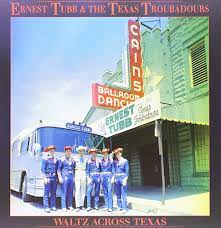
Waltz Across Texas is a country song written by Talmadge Tubb, the son of country music legend Ernest Tubb. The song was made popular by Ernest Tubb and became one of his signature songs.
It was released in 1965 as a single by Ernest Tubb. The song quickly gained popularity and became one of his biggest hits. It reached the top of the country music charts, solidifying its place as a classic in the country music genre.
The song's lyrics revolve around the theme of dancing and romance. The narrator invites a partner to waltz across Texas with them, symbolizing a journey of love and companionship. The upbeat and joyful nature of the song's lyrics makes it a favorite for dancing and celebration.
"Waltz Across Texas" features a catchy melody and a traditional country arrangement. The waltz rhythm of the song complements the theme of dancing, and Tubb's warm and emotive vocals add to its charm.
The song's popularity extended beyond its initial release. It has been covered by numerous artists over the years and remains a beloved choice for country musicians and fans alike. Its joyful and romantic nature has contributed to its enduring appeal.
"Waltz Across Texas" further solidified Ernest Tubb's status as a country music icon. The song became associated with his legacy and added to his catalog of classic hits.
The song's title and chorus have become a familiar phrase, often used in a figurative sense to describe taking a romantic journey or embarking on an adventure. This demonstrates the song's influence on popular culture.
In addition to Ernest Tubb's version, "Waltz Across Texas" has been covered by various artists in different styles, showcasing its versatility and timeless appeal.
"Waltz Across Texas" is a classic country song that captures the essence of love, dancing, and joyful celebration. Its legacy continues through its influence on country music and its ability to bring joy to audiences of all ages.
- Drop D Tuning = Yes
- Capo = 2nd fret
- Rhythm = root up down up down up and repeat
- Picking = Yes
- Chords = G, D
Jump To Top Of Ernest Tubb Songs
Some fun facts about Ernest Tubb
Ernest Tubb was an American singer and songwriter who played a significant role in the country music genre. He was born on February 9, 1914, in Crisp, Texas, and he passed away on September 6, 1984. Tubb is often referred to as the "Texas Troubadour."
Ernest Tubb was known for his distinctive voice, honky-tonk style, and contributions to the development of country music, particularly during its early years and the post-war era.
Tubb's music career began in the 1930s, and he gained prominence in the 1940s and 1950s. He started performing on local radio stations and later joined the Grand Ole Opry, a famous country music radio show.
Tubb is credited with introducing the electric guitar to country music. He incorporated it into his band, The Texas Troubadours, helping to shape the honky-tonk sound and paving the way for the use of electric instruments in the genre.
Some of Tubb's popular songs include "Walking the Floor Over You," "Waltz Across Texas," "Drivin' Nails in My Coffin," and "Rainbow at Midnight." These songs became classics and are still celebrated in country music circles.
Tubb's music had a significant influence on the development of honky-tonk and traditional country music. His heartfelt and emotive singing style resonated with audiences and fellow musicians.
He founded his own record label, "Ernest Tubb Record Shop," which helped him gain more control over his music and its distribution. The record shop in Nashville, Tennessee, also became a hub for country music fans.
Ernest Tubb is considered one of the pioneers of country music. He influenced many later artists, including Merle Haggard, Willie Nelson, and George Jones. His contributions to the genre earned him a place in the Country Music Hall of Fame.
Tubb was known for his cowboy hat, suits, and ties, which became his signature style. He embodied the image of a traditional country artist.
Thank you for dropping by my Ernest Tubb songs page.
If you liked this Ernest Tubb page, you might like ... (click images)
Home Page
Very Easy Country Guitar Songs
